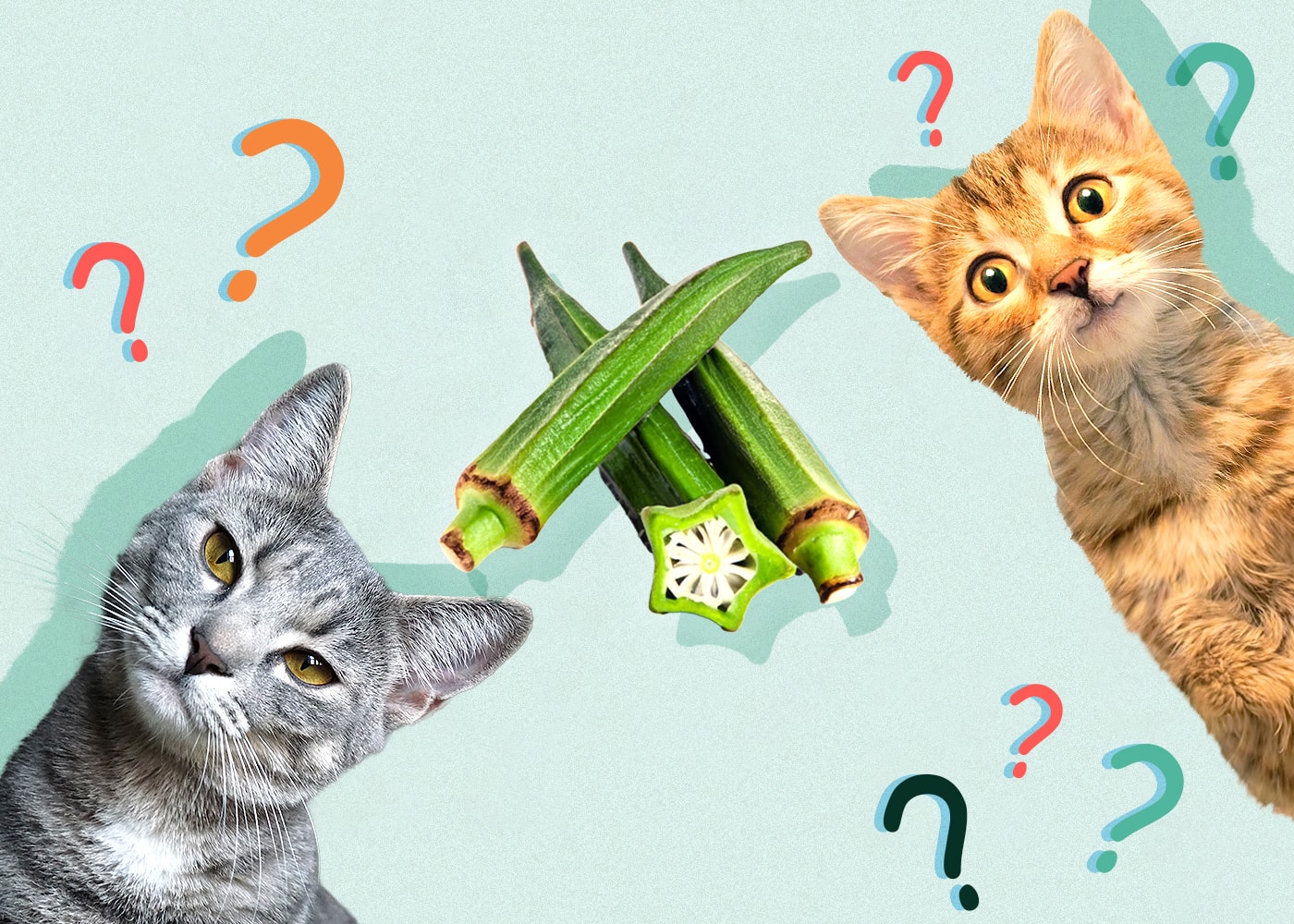Can Cats Consume Okra? Nutritional Value, Advantages, and Risks of Feeding Okra to Cats
Okra can be eaten by cats, although comprehensive and balanced cat foods are preferred. Cats should avoid eating a variety of plants. Okra, on the other hand, is one of the permitted foods, and it may even provide some health benefits to your cat.
Introduction
As pet owners, we frequently wonder about the safety of feeding our favorite foods to our feline pets. The attention is now on okra, a versatile and nutrient-rich vegetable that is often utilized in a variety of cuisines. Can cats, however, consume okra? In this investigation, we investigate the nutritional makeup of okra, assess its benefits and risks for cats, assess its safety for feline ingestion, describe its digestibility, examine indications of probable poisoning, and give prevention and feeding advice. Along the way, we'll look into alternatives and supplements that are more in line with a cat's dietary demands.
Okra's Nutritional Composition
Okra, a vegetable famous for its slimy texture, is high in nutrients. It provides nutritional fiber, vitamins C and K, and minerals such as calcium and magnesium. However, it is critical to analyze how these components interact with the physiology of a cat.
The Advantages of Feeding Okra to Your Cat
Can Cats Consume Okra? Because of its vitamin and mineral content, okra may be beneficial to cats. Vitamin C can help the immune system, while fiber can help with digestion. However, these advantages must be balanced against cats' specific dietary requirements.
Potential Dangers of Feeding Okra to Cats
Although okra is not intrinsically harmful, there are certain hazards linked with feeding it to cats. Cats are obligate carnivores, with digestive tracts designed to handle animal proteins. Plant-based meals, such as okra, can cause stomach upset and impair nutrient absorption.
Is it safe for cats to eat okra?
Okra may not be harmful to cats if consumed in small, plain, and well-cooked servings. However, given to the variations in feline and human dietary requirements, its safety as a regular or significant part of a cat's diet is unclear.
Okra Digestibility in Cats
Can Cats Consume Okra? Cats evolved as obligate carnivores, requiring animal proteins for optimal nutrition. While they can handle tiny amounts of plant-based diets, their digestive systems are not designed to break down and absorb nutrients from vegetables such as okra.
Okra Poisoning Symptoms in Cats
Excessive okra consumption might cause gastrointestinal upset in cats. Vomiting, diarrhea, and loss of appetite are all possible symptoms. If your cat has accidently consumed okra, it is critical to keep an eye out for these symptoms.
Preventing Unintentional Consumption
Prevention is essential for your cat's health. Storing okra and other similar items securely and keeping them out of your cat's reach can help prevent accidental intake.
Feeding Okra in Moderation and Frequency
Can Cats Consume Okra? If you opt to share a small amount of okra with your cat, use extreme caution. However, because it is plant-based, okra should not be a regular part of a cat's diet.
Supplements and Alternatives
Prioritize nutritionally complete cat food to suit your cat's nutritional needs. High-quality cat snacks and lean proteins are healthier and more appropriate alternatives to okra.
Finally, can cats eat okra?
While okra is not poisonous to cats in tiny, well-cooked amounts, it is not suitable for feline food. A balanced diet adapted to a cat's specific demands is essential.
Last Words on Feeding Okra to Cats
Can Cats Consume Okra? Understanding your cat's nutritional requirements is the foundation of their wellness. Providing a nutritionally adequate diet maintains the health of your feline companion.
Dietary Consultation with a Veterinarian
Can Cats Consume Okra? Because cats have unique dietary needs, it is critical to consult a veterinarian before introducing human food into their diet. Expert advice ensures that your options are in line with your cat's individual requirements.
In a world where sharing moments and experiences with our cats is a joy, it's important to note that our palate preferences may not match our feline companions' nutritional demands.

